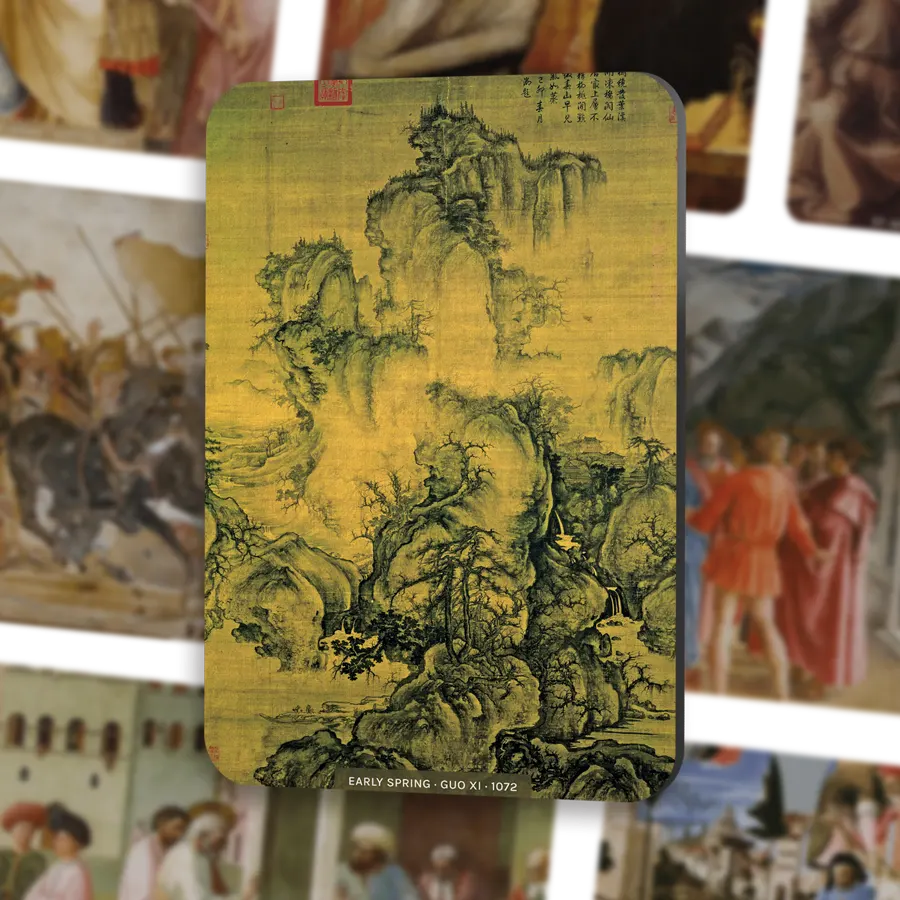History and science are two fascinating subjects that have shaped our understanding of the world we live in. The study of the history of science allows us to delve into the origins of scientific knowledge, understand the impact of historical discoveries on modern science, and explore the role of history in shaping the discipline of science.
What is the History of Science?
The history of science examines the development of scientific knowledge throughout human history. It encompasses the progression of scientific ideas, theories, and methodologies from ancient civilizations to the present day. By studying the history of science, we gain insights into how scientific knowledge has evolved over time, from early Greek scholars like Aristotle, who laid the foundations of modern science, to contemporary scientists who continue to push the boundaries of knowledge.
Key figures in the history of science
Throughout history, there have been numerous notable figures who have made significant contributions to the field of science. One such figure is Marie Curie, a pioneer in the study of radioactivity. Her groundbreaking research revolutionized our understanding of this phenomenon and earned her two Nobel Prizes. Another influential scientist is Charles Darwin, whose theory of evolution transformed the field of biology forever. Darwin's observations and insights into the natural world sparked a scientific revolution and continue to influence scientific research today.
The impact of historical discoveries on modern science
Historical discoveries have had a profound influence on modern science. They have provided the foundation upon which new scientific theories and breakthroughs are built. For example, the discovery of the laws of motion by Isaac Newton in 1687 laid the groundwork for the field of physics and formed the basis of our understanding of the physical world. Similarly, the development of the microscope by Antonie van Leeuwenhoek in the late 17th century revolutionized the field of biology, allowing scientists to observe and study microscopic organisms in greater detail.
Why is the Study of History Important in Science?
Exploring the historical context of scientific breakthroughs
The study of history in science is crucial as it allows us to explore the historical context in which scientific breakthroughs occur. By understanding the social and intellectual conditions of the time, we can gain insight into the factors that influenced scientific discoveries and innovations. This knowledge encourages us to critically analyze and question the scientific theories and methods that have emerged throughout history, leading to a deeper understanding and engagement with the subject matter.
Highlighting the influence of past scientists on current research
Past scientists have played a pivotal role in shaping the scientific landscape we know today. Their original research and insights continue to inspire and guide contemporary scientists in their own work. By studying the works of these scientific pioneers, researchers can build upon their discoveries and contribute to the advancement of scientific knowledge. The contributions of past scientists serve as a testament to the interconnectedness of scientific progress across generations.
The Role of historical research in shaping scientific principles
Historical research plays a crucial role in the development and evolution of scientific principles. By examining historical records and publications, researchers can gain a deeper understanding of the context in which scientific theories and principles were formulated. This knowledge allows scientists to critically assess and evaluate the validity and reliability of existing scientific knowledge, leading to the refinement and improvement of scientific principles over time.
Who are the Notable Scientists in History?
Aristotle: The Father of Western Science
Aristotle, one of the most influential philosophers and scientists of ancient Greece, made significant contributions to various fields, including biology, physics, and astronomy. His works laid the foundation for many scientific disciplines, and his ideas continue to be studied and debated by scholars and scientists today.
Marie Curie: Revolutionizing the Field of Radioactivity
Marie Curie, a Polish-born physicist, and chemist, is renowned for her pioneering research on radioactivity. Her groundbreaking discoveries revolutionized the field of physics and earned her the distinction of being the first woman to win a Nobel Prize. Curie's work continues to inspire scientists and serve as a testament to the extraordinary contributions of women in the field of science.
Charles Darwin: Unraveling the Mysteries of Evolution
Charles Darwin, an English naturalist, is best known for his theory of evolution. In his seminal work "On the Origin of Species," Darwin outlined the concept of natural selection, which explained the mechanics of evolutionary change. Darwin's revolutionary ideas sparked intense debate and controversy during his time and continue to shape the field of biology to this day.
Isaac Newton: Laws of Motion and Universal Gravitation
Isaac Newton, an English physicist, and mathematician, is considered one of the most influential scientists in history. His laws of motion and universal gravitation laid the groundwork for classical mechanics and transformed our understanding of the physical world. Newton's discoveries revolutionized physics and continue to be fundamental principles in the field.
Albert Einstein: Theory of Relativity
Albert Einstein, a German-born physicist, is best known for his theory of relativity. His groundbreaking work revolutionized the field of physics and fundamentally changed our understanding of space, time, and gravity. Einstein's contributions have had a profound impact on modern physics and continue to be studied and expanded upon today.
Galileo Galilei: The Father of Modern Science
Galileo Galilei, an Italian astronomer, physicist, and mathematician, is often referred to as the father of modern science. His telescopic observations and experiments challenged prevailing beliefs and paved the way for the scientific method. Galileo's work laid the foundation for modern physics and astronomy and transformed the way we study and understand the natural world.
Overall, these notable scientists have made groundbreaking contributions to various fields of science and have had a lasting impact on our understanding of the world. Their work continues to be studied and built upon by scientists today.
What is the Role of History in Scientific Discovery?
Examining the role of historical records in scientific validation
Historical records often serve as a valuable source of evidence to validate scientific discoveries and theories. By referring to past experiments, observations, and findings, scientists can ensure the credibility and reproducibility of their own research. Historical records also provide insights into the development of scientific methods and approaches, allowing scientists to build upon previous knowledge and further expand the frontiers of scientific discovery.
Understanding the influence of historical debates on scientific progress
Historical debates and controversies have played a significant role in shaping scientific progress. They have led to the refinement and improvement of scientific theories and methodologies, as well as the emergence of new areas of study. By examining past debates, scientists can gain a better understanding of the dynamics of scientific discovery and the role of dissenting opinions in driving scientific progress.
The Importance of historical knowledge in interdisciplinary research
Interdisciplinary research, which combines insights and methodologies from various disciplines, has become increasingly important in advancing scientific knowledge. Historical knowledge provides a valuable perspective in interdisciplinary research, enabling scientists to contextualize and understand the development of scientific ideas across different time periods and cultures. By incorporating historical perspectives, researchers can gain a more comprehensive understanding of the complex issues they are investigating.
How Does History Shape the Discipline of Science?
The connection between history, philosophy, and the scientific method
History, philosophy, and the scientific method are intertwined in shaping the discipline of science. The historical context in which scientific discoveries are made often reflects the prevailing philosophical and cultural beliefs of the time. Similarly, the scientific method, which emphasizes empirical observation, experimentation, and logical reasoning, has evolved over time through historical and philosophical contributions. Understanding this connection allows scientists to appreciate the rich tapestry of influences that have shaped the discipline of science.
Exploring the evolution of scientific instruments and technology
The evolution of scientific instruments and technology has had a profound impact on the practice of science. From the invention of the microscope to the development of powerful telescopes, these tools have expanded our ability to observe and study the natural world. Historical knowledge of scientific instruments and technology provides insight into the advancements that have shaped the discipline and continue to drive scientific progress.
The impact of historical milestones on various branches of science
Historical milestones have had far-reaching effects on various branches of science. For instance, the discovery of black holes in the field of astrophysics has revolutionized our understanding of the universe. Similarly, the development of evolutionary theory has transformed the field of biology and influenced diverse areas such as medicine and conservation. By appreciating these historical milestones, scientists can trace the trajectory of scientific progress and build upon the insights gained from past achievements.
Learn about history, and science through interactive magnetic cards. Check out MUSÉEWALL collections.
Q: Can you give an example of a significant scientific discovery that has shaped our world?
A: One example of a significant scientific discovery that has shaped our world is Isaac Newton's Principia Mathematica, which laid the foundation for classical mechanics and our understanding of the laws of motion.
Q: What is the Department of History and Science about?
A: The Department of History and Science is an academic division that explores the intersection of historical events and scientific advancements.
Q: Who are some significant figures studied in the Department of History and Science?
A: Some significant figures studied in the Department of History and Science are Aristotle, Carl Linnaeus, and Georges.




